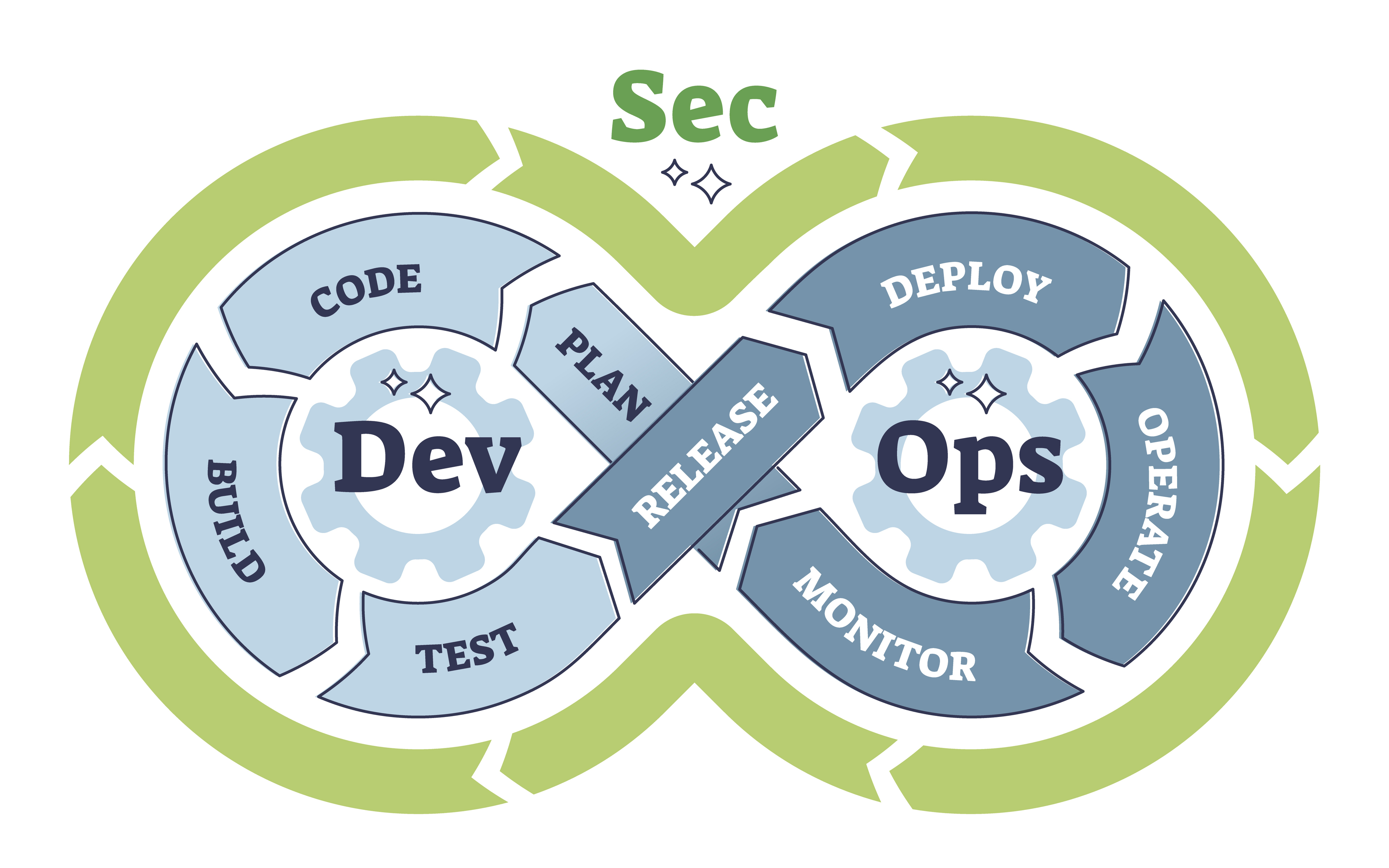In today’s fast-paced software development world, terms like DevOps, DevSecOps, and security posture are frequently discussed. These concepts help streamline complex processes but can sometimes lead to confusion if not used correctly. DevOps and DevSecOps, in particular, are pivotal to modern development practices, yet they are often misunderstood.
DevOps, a concept introduced in 2009, represents a move towards integrating development and operations teams to speed up deployment, reduce failures, and enable faster recovery. Despite its goals, many organizations find that the practical application of DevOps doesn’t always meet the ideal vision. DevSecOps builds on the principles of DevOps, incorporating security into the development process from the beginning.
Core Aspects of DevOps and How They Evolve with DevSecOps
Agile Methodology
The Agile methodology, integral to DevOps, promotes shorter development cycles and quick iterations, allowing teams to respond rapidly to customer feedback. However, traditional Agile practices often did not account for operational feedback and security needs, treating them as secondary. DevSecOps addresses these gaps by integrating security considerations early in the Agile process, making security a priority from the outset.
Container Technologies
Container technologies have transformed the Software Development Lifecycle (SDLC) by enabling developers to work independently of operational resources. This separation, while boosting development speed, often resulted in a disconnect between development and operations, with security being overlooked. Tools like Kubernetes now help collaboration between development and operations, and DevSecOps ensures that security is integrated into these containerization and orchestration processes.
Automation
Automation is crucial in both DevOps and DevSecOps, enabling efficient development and deployment. While DevOps focuses on automating code integration, testing, and deployment, DevSecOps takes it further by adding automated security checks into Continuous Integration (CI) pipelines. This approach provides developers with immediate feedback on security issues, helping them address vulnerabilities without delaying development.
In DevSecOps, security teams act as partners rather than obstacles. They provide secure base images and implement automated checks to maintain a secure codebase. This collaboration makes security a seamless part of the development process.
Everything as Code
The “everything-as-code” principle is central to both DevOps and DevSecOps. DevOps emphasizes version-controlled, repeatable infrastructure and application configurations. DevSecOps extends this by applying the same principles to security, with YAML files defining security policies and permissions. This ensures that security is consistent and transparent, with all configurations undergoing rigorous version control and collaboration.
Proper documentation is essential for maintaining a secure and efficient development environment. Documenting pipeline configurations and security practices prevents the loss of knowledge and supports shared learning across the organization.
Communication and Collaboration
Effective communication and collaboration are key to both DevOps and DevSecOps. DevOps breaks down barriers between development and operations teams, fostering a culture of trust and shared responsibility. DevSecOps builds on this by making security a shared responsibility that involves ongoing dialogue between development, operations, and security teams.
Intent plays a critical role in this collaboration. Misunderstandings about the goals of each team can hinder effectiveness. Security teams are often seen as obstacles to rapid development, but they are essential in protecting the organization. Development teams, while focused on meeting deadlines, must also understand the importance of security. Bridging this gap requires a cultural approach that values security as integral to development.
Looking Ahead with DevSecOps
As organizations increasingly adopt DevSecOps, several practices are becoming essential:
- Short Iterative Cycles: Embedding automated security checks in each iteration ensures continuous evaluation and improvement.
- Consistent Environments: Applying uniform security controls across all environments reduces vulnerabilities.
- Version-Controlled CI Pipelines: Rigorous version control over CI pipelines supports post-incident analysis and ongoing improvement.
- Thorough Documentation: Declarative methods for documenting security policies help retain and share knowledge.
- Cultural Change: Encouraging a culture that embraces security as a shared responsibility is vital for DevSecOps success.
DevSecOps is more about fostering a culture of collaboration and commitment to security than about specific tools. While tools play a role, the methodology’s success relies on teamwork and a shared focus on security. The future of DevSecOps depends on its ability to adapt and evolve, keeping security at the forefront of software development.
Embracing DevSecOps enables organizations to build more secure, reliable, and efficient software, making security a foundational element of success.
How Can Netizen Help?
Netizen ensures that security gets built-in and not bolted-on. Providing advanced solutions to protect critical IT infrastructure such as the popular “CISO-as-a-Service” wherein companies can leverage the expertise of executive-level cybersecurity professionals without having to bear the cost of employing them full time.
We also offer compliance support, vulnerability assessments, penetration testing, and more security-related services for businesses of any size and type.
Additionally, Netizen offers an automated and affordable assessment tool that continuously scans systems, websites, applications, and networks to uncover issues. Vulnerability data is then securely analyzed and presented through an easy-to-interpret dashboard to yield actionable risk and compliance information for audiences ranging from IT professionals to executive managers.
Netizen is an ISO 27001:2013 (Information Security Management), ISO 9001:2015, and CMMI V 2.0 Level 3 certified company. We are a proud Service-Disabled Veteran-Owned Small Business that is recognized by the U.S. Department of Labor for hiring and retention of military veterans.
Questions or concerns? Feel free to reach out to us any time –
https://www.netizen.net/contact



